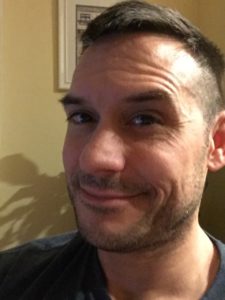Brian tried many times to overcome addiction- and failed. Or did he?

Using illicit drugs since the young age of 14, Brian had been abusing substances for 23 years. From alcohol to opioids, Brian has tried it all. Hospitalized more than 30 times, he had been treated in many detox and rehab centers only to relapse and go back to what was familiar. “At first, I was in denial, I didn’t realize that I had a problem. When I would try not to use, it was all I could think about. It was an obsession, coupled with compulsion.”
Brian is not alone. In fact, relapse rates for substance use disorders is comparable to those with other chronic illnesses, such as hypertension or asthma. According to a study conducted by the Journal of American Medical Association (JAMA), people recovering from substance use disorder relapsed 40%-50%; high blood pressure 60%-70%; asthma 60%-70%. Researchers suggest that substance use disorders should be treated as chronic illnesses and that relapse serves as a sign to modify or create a new treatment plan for the individual.
Individualized treatment plans are a necessity in combating substance use disorders. As the opioid epidemic rises, we are learning that recovery is not one-dimensional. Many people with substance use disorder often have a co-occurring disorder. This is when substance use is coupled with mental health issues, such as anxiety and mood disorders, making it difficult to properly diagnose and create an appropriate treatment plan. “It was 2 years into my sobriety and I still didn’t feel well,” Brian stated. During his time in multiple detox and rehabilitation centers, clinicians had not even scratched the surface with his mental health issues, which made staying sober more challenging. “After being sober for 2 years I just didn’t feel right. I knew there had to be more. I started going to a therapist where I was diagnosed with Post Traumatic Stress Disorder (PTSD) and bi-polar disorder.”
Lack of proper diagnoses was not the only barrier that Brian faced on his road to recovery. Brian had also been turned away from a local hospital when trying to seek help during a time where he was in crisis. “I was desperate and was contemplating suicide.” Because Brian had been seen a few times, he was told that he was “just another alcoholic” and was asked to leave. “This was the first time I had experienced bias for my condition,” Brian stated.
Brian, now 6 years sober, was able to stay clean with intense therapy and medication for his mental health issues. As part of maintaining his recovery, his clinician recommended the Mental Health Association in NJ where he could do peer work. “I am grateful for MHANJ. I feel blessed.”
Brian joined the Mental Health Association in NJ, first completing the Wellness Recover Action Plan training (WRAP) which is a self-designed prevention and wellness process where people develop a plan of action to stay well. He then was trained by MHANJ’s Consumer Connections as a peer and is a Certified Recovery Support Practitioner (CRPSP). Brian worked on the NJ Connect for Recovery call line, helping people who have a substance use disorder, or their loved ones. As NJ Connect for Recovery staff, he completed the Certified Peer Recovery Specialist (CPRS) training – an addiction peer certification, making him well trained to support individuals with co-occurring disorders. Brian is one of the few peers in NJ holding the dual certification.
“The peer-to-peer aspect of my recovery provided mutual support and helped me put things in perspective,” Brian stated. He was able to listen to family members and those who struggled with substance use disorder and provide them with real-life solutions and personal experiences to help them move towards recovery. “I would report back to my therapist and we would discuss how mutually beneficial it was for me, now being on the other side of things.”
Throughout his journey, Brian has also re-established his relationship with God. “It was almost impossible for me to stay clean without the spiritual component,” Brian stated. Reconnecting with God helped him realize how valuable he is to the world and encourages him to continue to strive for a healthy, sober life.
